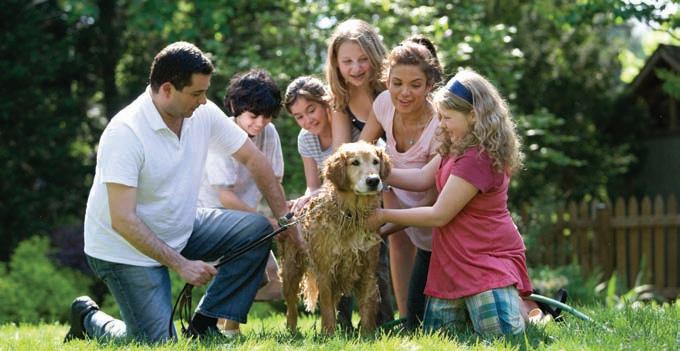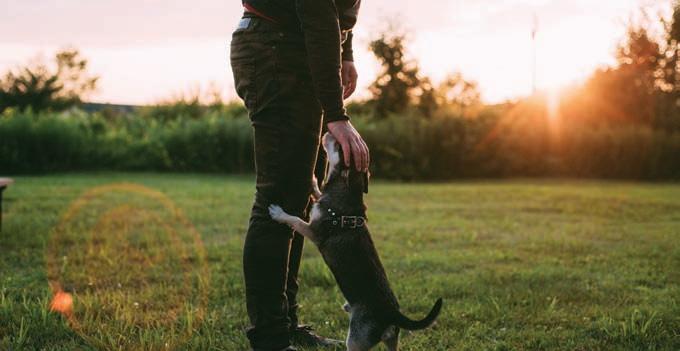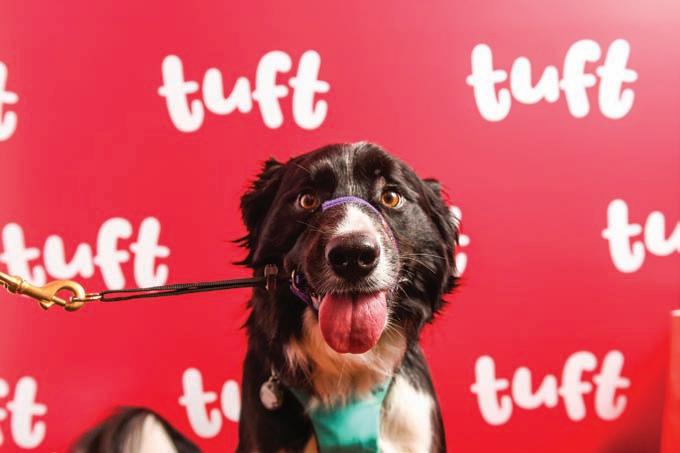
12 minute read
Latest tech innovations
Tuft Tech for Groomers
Introducing Tuft — the new software for grooming establishments. Tuft founder, Chloe Smith, explains how this technology is transforming the grooming world by streamlining processes and making business management more effective:
1) Where did the inspiration for Tuft come from?
Tuft has been an idea in my head for a while; but if we were to go right back to the start, it would be because of the frustrating process my dad had to go through to get my first dog — a very hairy Yorkie — in for a groom. Groomers were always too busy with other customers to answer the phone and hunting around for them on what was, back then, the new-fangled internet, was impossible.
Obviously, I didn’t realise it at the time, but when my parents got another couple of pooches (also hairy), I was a lot older, eighteen years older in fact, and the process remained the same. I actively looked for something in the market and it hadn’t been done. Then, when my sister experienced the same struggles last year, I knew something had to be done. That was when Tuft was born.
2) What are the key features of Tuft?
Tuft boasts a range of innovative features, built specifically to help pet groomers with their everyday admin. We’ve got ambitious plans for the future, but here are my favourites so far: • Pricing system — we have worked very hard on the pricing system, which matches the dog’s breed and coat type, with a price that is specified by the individual groomer. This feature, controlled at a service level, means you can cut out those ‘How much?’ calls and messages from multiple platforms. Prices are listed
‘from’ on the app too, so you can easily adjust if you find the dog takes longer on the day. • Speaking of multiple platforms, Tuft keeps everything in one, with our in-app direct messaging between pet groomers and their clients. This secure system allows you to share photos, keep a paper-trial and easily refer to previous conversations should you need to resolve any disputes. • Day-to-day business is additionally streamlined with our powerful selfservice booking calendar, making it super easy for groomers to have full control, whilst allowing owners to book themselves in. By only showing available appointment times, Tuft ensures there are no odd time gaps
60 YEARS YOUNG! Supajets blow other dryers away
Now available in a range of five colours
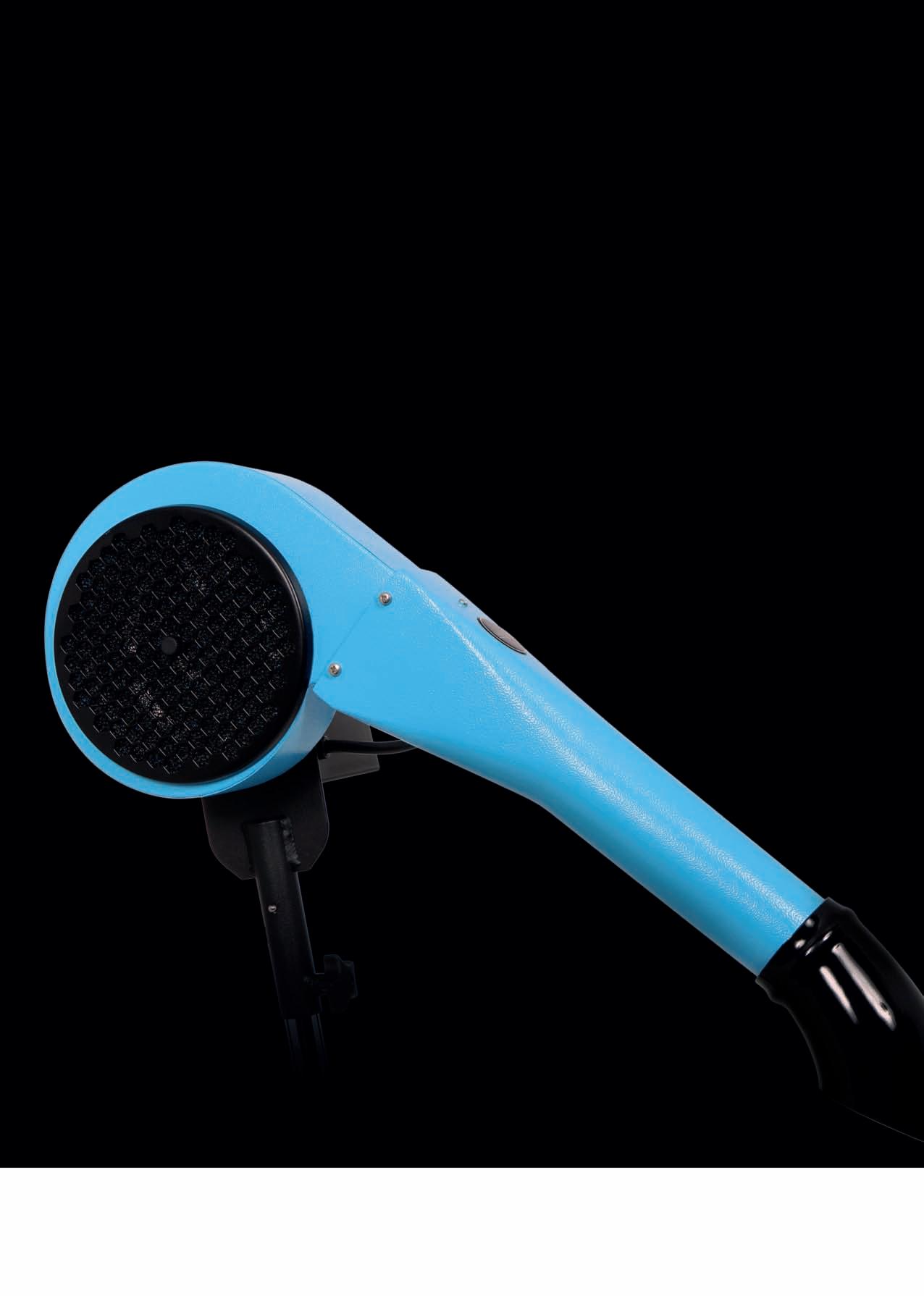
They outperform and outlast the competition
If you're looking for a new dryer, the SUPAJET is di icult to ignore as it's set the industry gold standard for more than 50 years. It’s remains the 'grooming' nations favourite dryer because it’s so well designed - a SUPAJET is built to perform and built to last. Unlike some other dryers, a SUPAJET needs only occasional servicing and, simple maintenance to help keep it working in tip-top condition. Most importantly, the SUPAJET delivers optimum air speed and temperature to dry coats of all types and textures, fast and e ectively. So, if your salon needs a dryer that's reliable, e icient and cost e ective to run, look no further. The SUPAJET is simply 'best in blow'.
— a concern some groomers have expressed about current systems. • Finally, we’re also about to roll out a
‘data converter’, which makes it easy for you to move away from other software platforms. This will allow you to upload existing client records seamlessly to the Tuft system, which is ideal for those with full capacity. • Phase two will see the roll out of multiple groomers in one salon — giving you multiple calendars, and the opportunity for clients to choose their groomer when booking, in-app tipping, integrations with in-salon payment systems, and specific features for mobile dog groomers to cater for this format of business.
3) How does Tuft make groomers’ lives easier?
Automation! Admin is boring for all business owners, and many of us, including myself, end up doing more admin than what they love. To combat this, we’ve built in some great tools to reduce the admin burden, so groomers can spend less time on laborious tasks and more time on what they do best: making pooches look pretty.
This doesn’t mean groomers are losing control though, and we have been careful to keep this in mind when building the software.
Tuft also takes away the stress of new client admin by asking clients to input their dog’s details beforehand. Client records created by clients, but fully editable by you — ideal.
Tuft’s ‘rescheduling tool’ also makes the appointment ‘dance’ process easier too. With the click of a button, you can offer your clients a new appointment, which they can accept or decline via the app. No need to call them at a ‘convenient time’.
We know there’s a long way to go before we fully automate this process, owing to the many variables in a pet grooming business, but we are giving it our best shot.
Oh, and it’s pretty to look at because we cannot imagine anything worse than having a stressful day at the salon, only to have your retinas burned by a poor design. Simplicity has been the core focus of this software.
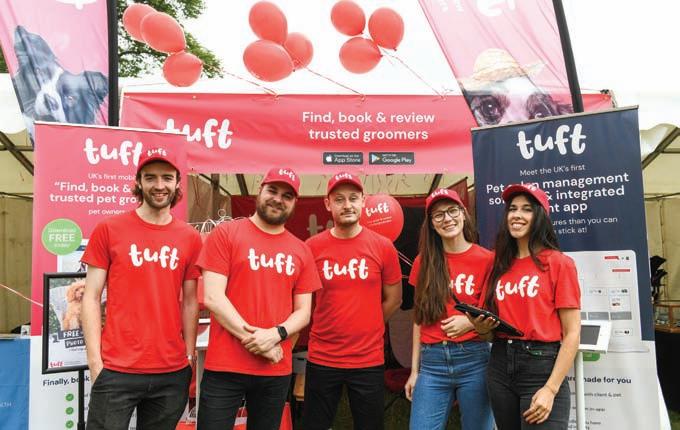
4) How do groomers get their hands on this new software?
We are currently doing a 6-month free trial for new groomers, and we will even work with you to move your system from another if you need a hand. Simply go to the website and select ‘Pet groomer’ and everything you need will be there.
If you want to benefit from new clients getting in touch, you can list your salon on the Tuft app for free. This is handy if you already have a booking system and don’t want to make the switch… yet.
5) We spotted that you’re looking to have an online shop as part of Tuft in the future. Can you tell us more about this?
Like everything in Tuft, we have considered both sides of the user journey — pet groomer and pet owner.
The shop will allow pet groomers to add an additional revenue stream to their business. Rather than pet groomers having to maintain a separate eCommerce website, this function will be handled via Tuft. This will keep everything in one place and a marketplace-style offering to our dog owners.
Additionally, directly within the dashboard we will be linking up with a supplier, where groomers can buy professional products direct, furthering the streamlining of running a pet grooming business.
6) Can dog owners use the software?
Yes! Dog owners can download the app and find groomers in their local areas. This plugs directly into the groomer’s salon management software, and they can book their next appointment in just a few clicks. The Tuft app is available in both Apple and Google Play stores and is completely free. You can find us by simply searching ‘Tuft’ in your app store.
Who gets the pets in a divorce?
Peter Reynolds, head of family law and partner at Rowberry Morris Solicitors based in Richmond, Surrey provides the answer:
During the last 12 months, the pet industry has boomed. Statistics show that 3.2 million households in the UK have welcomed a new pet into their homes since the start of lockdown in March 2020.
The mental health benefits of pet ownership are well known, which has been particularly important to many people navigating the social isolation caused by the pandemic. But whilst pets have undoubtedly mitigated the impact of separation from loved ones and colleagues for such a long period, their ownership will have hindered, not helped, the situation for some couples.
Divorce enquiries to legal firms have rocketed by 95% during the pandemic, with many citing spending too much time together or financial pressures as the main reasons for their separation.
Whilst this might not be surprising given the additional strain that Covidenforced alternate living and working circumstances have placed on many families, it does throw up several complex legal considerations for those involved, and it’s not just the division of money or childcare solutions that are causing the main headaches. It’s the tricky matter of what happens to the pets?
With an estimated 17 million households now reportedly caring for at least one animal, this could see an unprecedented amount of pet owners fighting with their other half about custody of their furry family members in the coming months. But what are the facts, and where do you stand legally when it comes to deciding who gets the dog in a divorce?
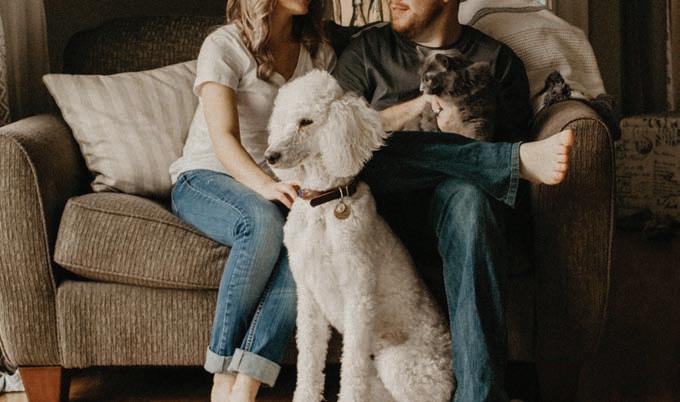
What does the law say?
Divorce is generally broken down into three specific areas: the divorce itself, which legally brings an end to the marriage or civil partnership; the living arrangements for any dependent children; and the financial arrangements for both parties and the children.
Although many parties assume the living arrangements for their pets will be handled in a similar way to the children during a divorce, legally this is not the case.
English and Welsh Law in fact treats pets as assets or possessions, similar to cars or items of jewellery. As such, As such, any dispute about pets will be managed in the same way as a disagreement about items of property any disputes about pets in the same way it handles disagreements about items of property. The court is not obliged to consider any of the personal and emotional attachments between pets and their owner, which people often find very confusing and upsetting.
How do you avoid going to court?
A mutually agreeable arrangement between both parties concerning ownership should be the primary objective. However, given that divorces can be highly emotionally charged, emotive matters such as pet ownership might not be so easily negotiated and it may be necessary to embark on mediation, which will enable those involved to negotiate via an impartial third-party.
Key things to consider are, what will cause the least amount of disruption to a pet’s life? Which living situation will best ensure their needs are met (think outdoor space, size of property, or working patterns)? Who can meet
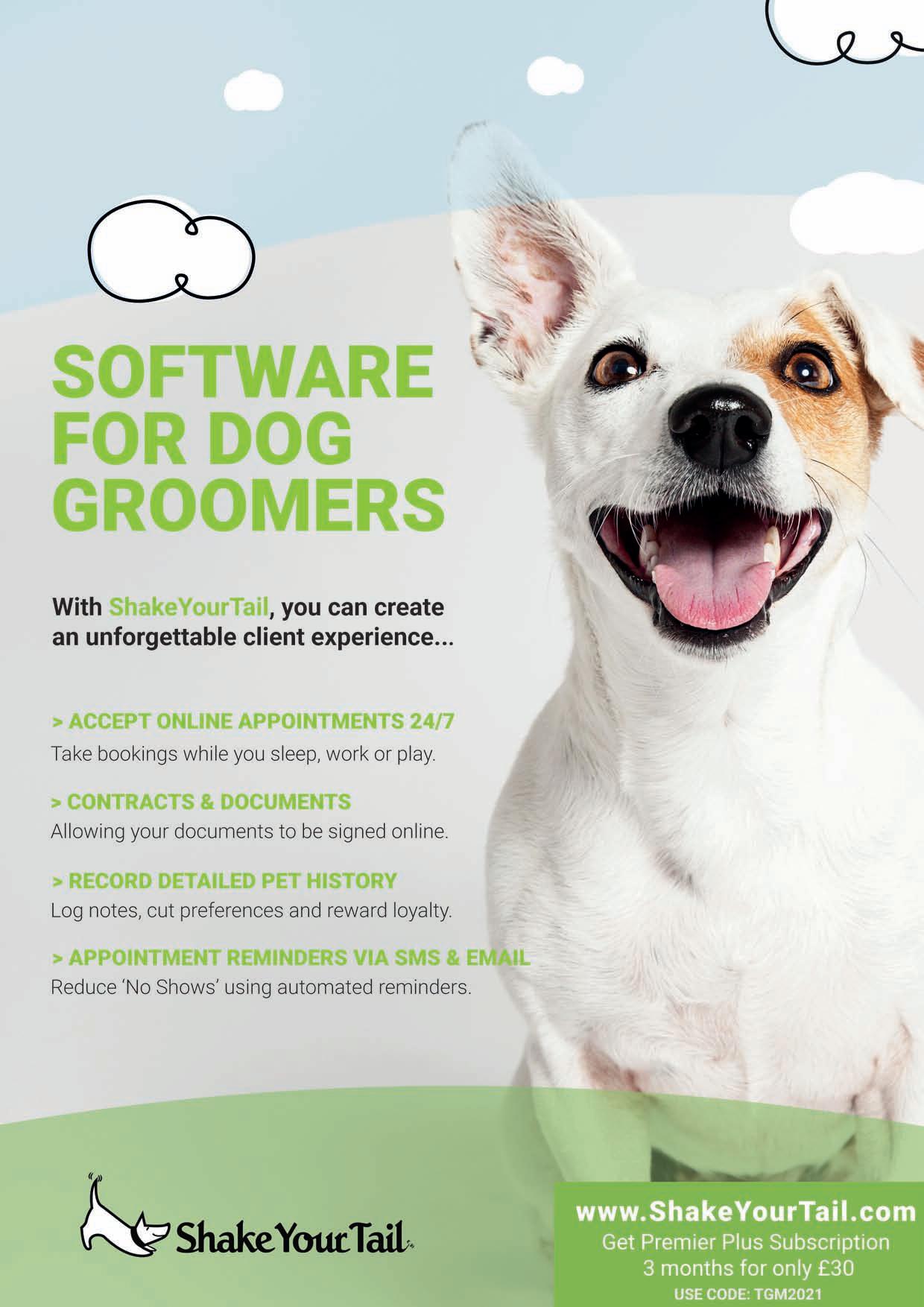
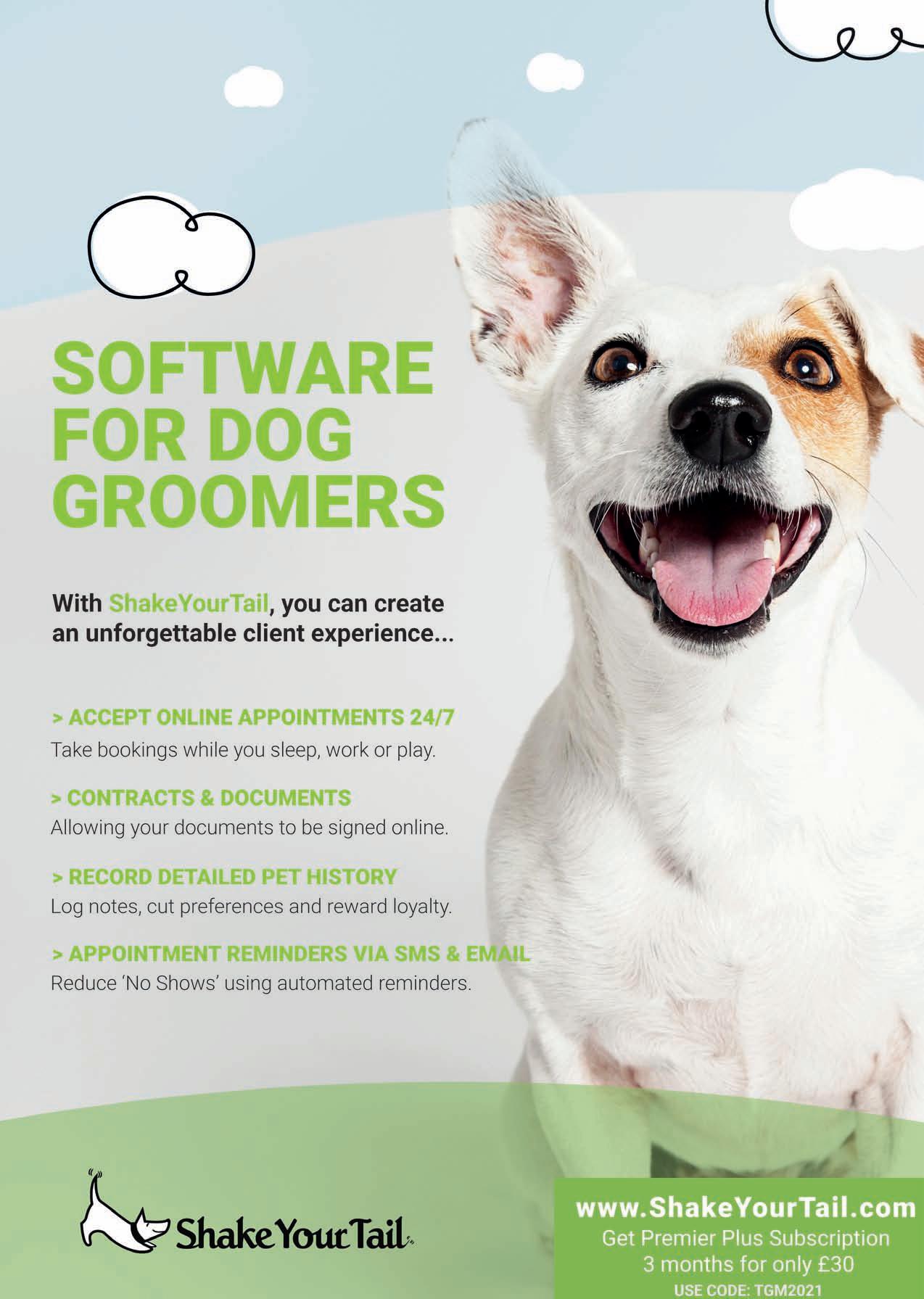

the costs of continual care?
If mediation doesn’t work, arbitration could be another route to resolving matters without going to court. An arbitrator can look at a range of factors to determine who should keep the pet and make a final decision.
In the absence of agreement, some couples may ultimately give up their pet to a family member or friend, or even surrender them for re-homing. Whatever the circumstances, selling or giving away a pet without the other party’s consent is generally inadvisable, as if the other party is found to be the legal owner, you could be charged with theft.
Prenuptials for pets?
No-one heads into a relationship thinking about how or when they might split up, but planning for all eventualities when things are civil and on good terms is sensible. Around 42% of marriages end in divorce and pets that outlive a marriage will need to be cared for.
The PDSA reports that a dog can cost its owner up to £30,800 throughout its life, whilst a cat could cost around £12,000, which makes engaging legal representation to prepare a prenuptial or cohabitation agreement for pets good financial sense. It can save a lot of time and stress later too.
Prenups for pets can not only outline who will take primary care of any animals after separation, but can also determine potential contact arrangements, preferred veterinary support, the maximum amount you are each willing to spend on insurance, emergency care and end of life cover.
Significantly, a pet prenup can prevent one spouse from using the pet as a bargaining tool for getting something else they want out of a divorce and protect against one party exacting revenge by either withholding access or selling the pet.
What happens if the dispute reaches Court?
The Family Court will seek to establish legal ownership of the pet. However, this is not usually dealt with until all other matters have been resolved and can take a long time.
A new status quo might be established that prejudices one party over the other and if a pet has been sold in the intervening period, the Court will no longer have any discretion to determine ownership. Moreover, any injunction to prevent such a sale is only likely to succeed if the pet is financially valuable.
The Family Court will determine the legal ownership of the pet by looking at several factors such as who purchased the pet, who is the primary carer, whose name is recorded on any microchip or insurance papers, and who is the animal registered to with the vets.
This can often be difficult to establish, particularly where the purchaser and primary carer are not the same person or where a joint account was used to fund the purchase costs, insurance cover and day to day care.
Where it is difficult to establish ownership, the Court will often focus on who has devoted most time to the care of the pet during the marriage, and who will be able to continue doing so.
Each party would need to evidence their personal involvement and showcase the post-marriage routine that will allow them to look after the pet. The Court would consider who has the most appropriate accommodation, financial resources and ability to look after the pet.
Once the Court has ruled upon ownership it has the power to order the return of a pet to the legal owner and should it be required, award any damages for wrongful retention of the animal.
From a legal standpoint, it is always preferable to avoid taking these matters to court as they are often more costly from a financial and wellbeing perspective, especially when these issues can be easily managed ahead of time by opting for a prenup.
It takes just a few honest conversations and some legal assistance, and you can be sure your pets’ best interests will remain protected in all eventualities.
